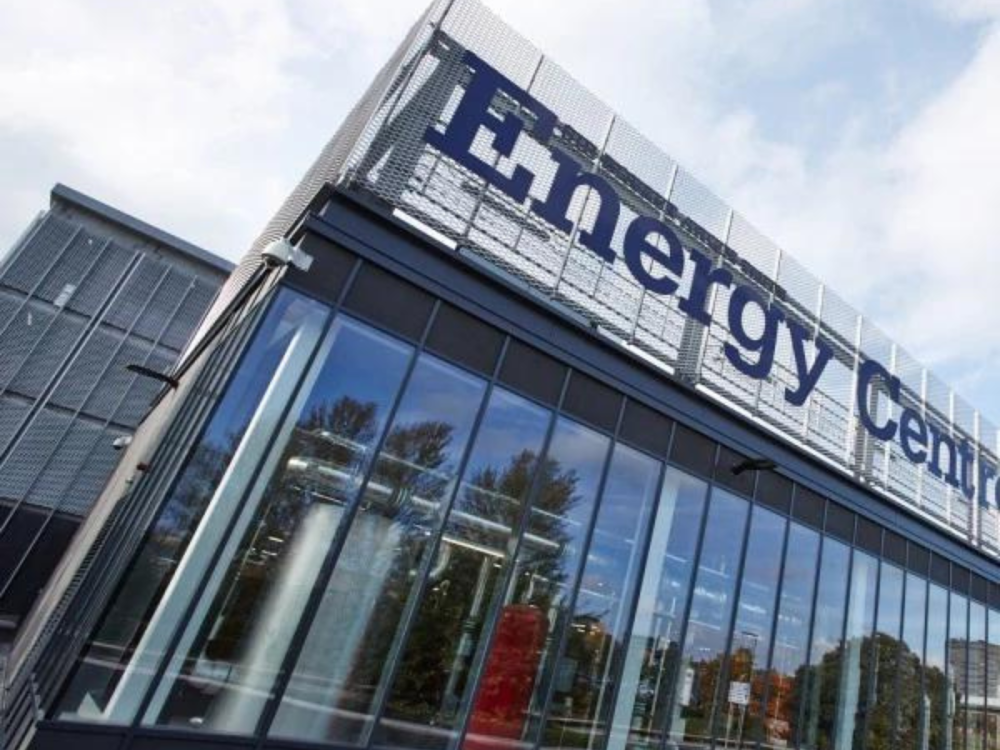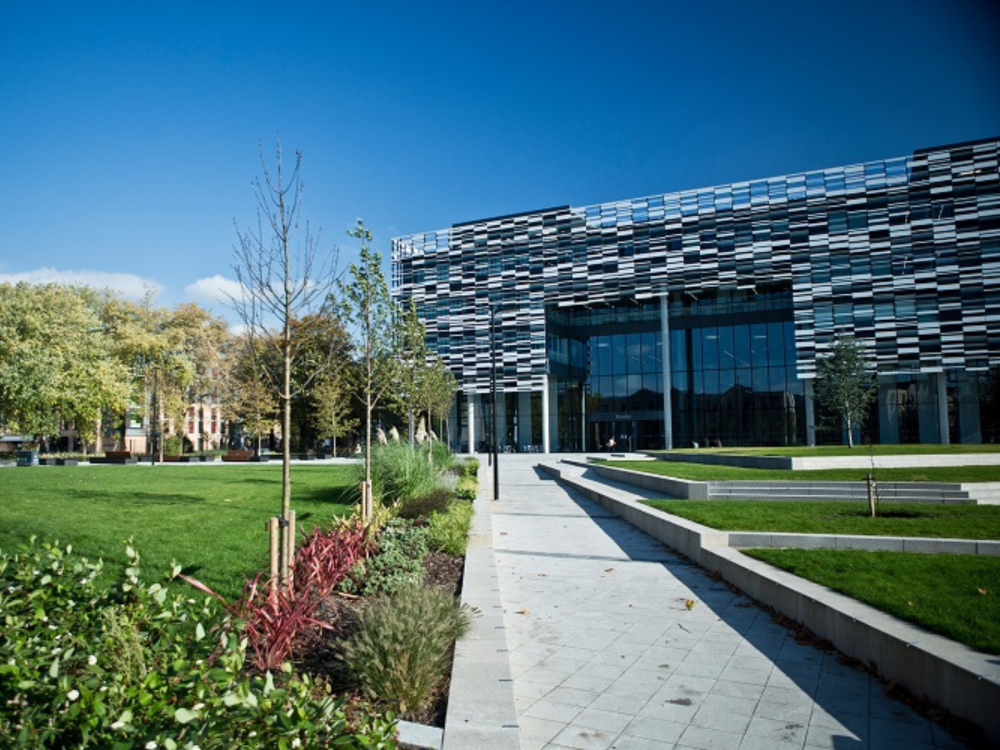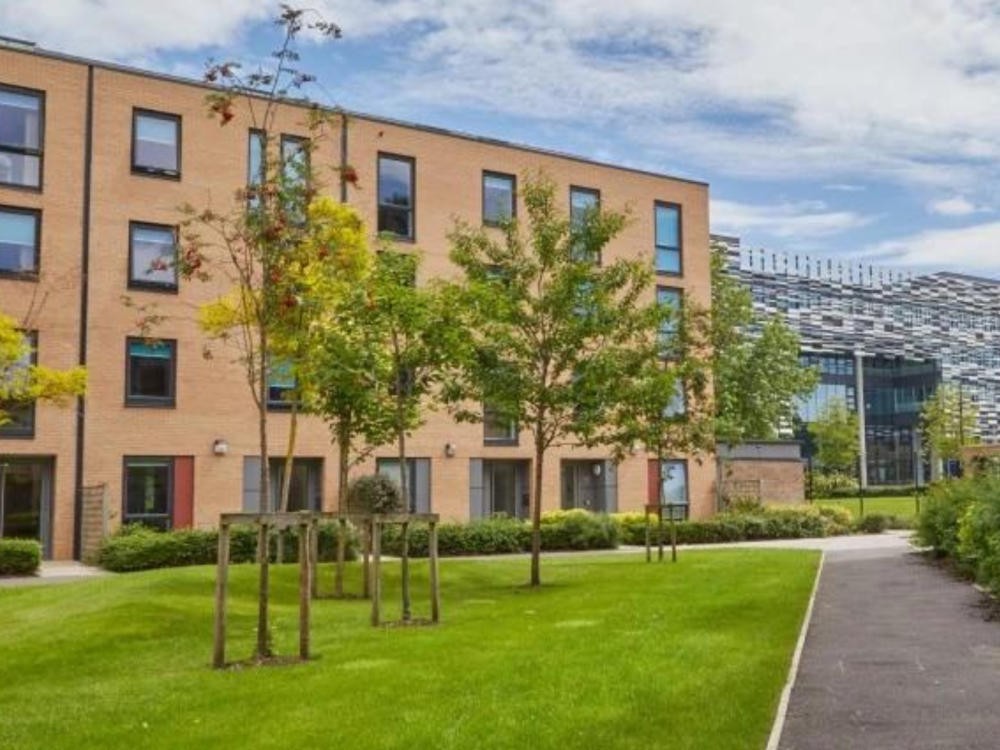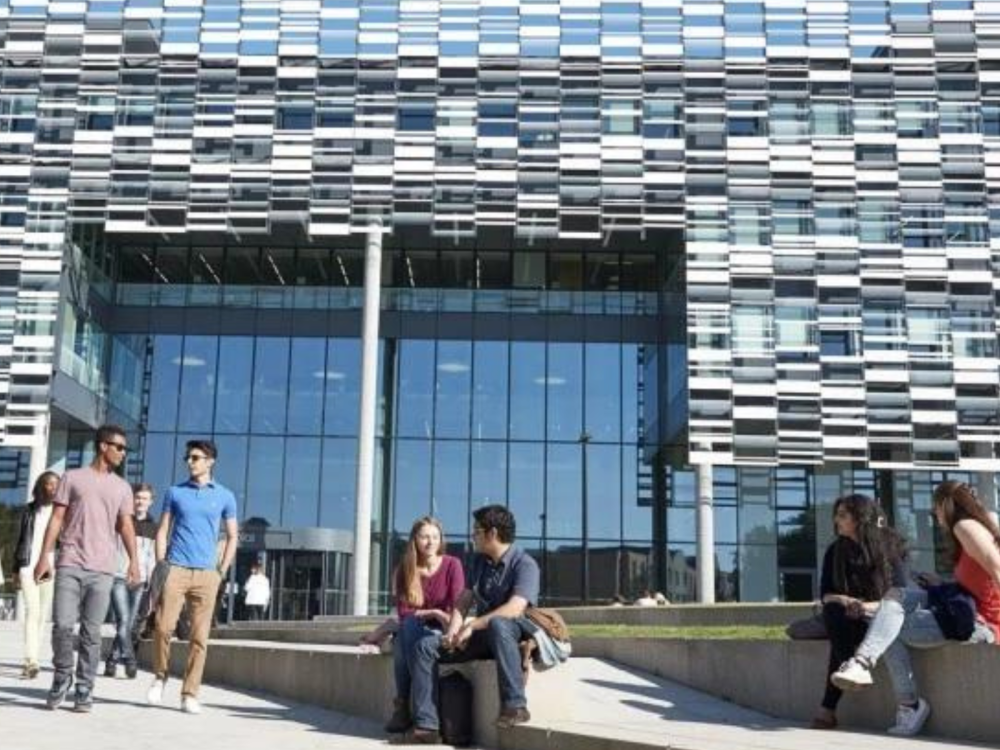Staff and students set to benefit from sustainable heating solutions at Manchester Metropolitan University
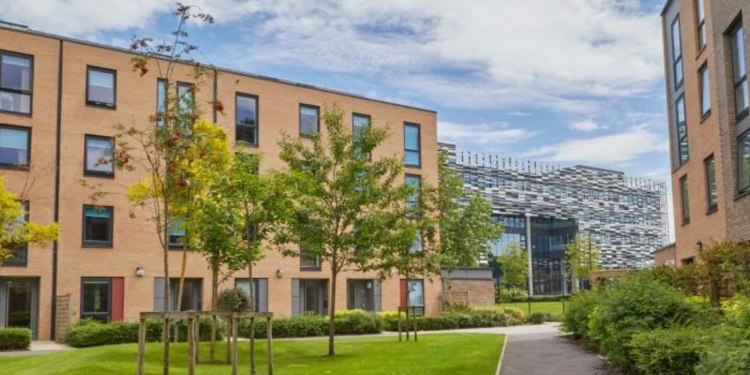
Wednesday 03 April 2024
Decarbonisation project celebrates latest milestone on road to completion
A large-scale decarbonisation project at Manchester Metropolitan University’s Birley Fields Energy Centre has reached a new milestone in its two-year journey.
The Birley Fields Energy Centre is home to the equipment that provides energy for heat and hot water across the Birley Fields campus. The campus is home to the faculties of education and health, psychology and social care, and to multiple halls of residences.
The project, which is centred around the replacement of old, end-of-life fossil fuel boilers and a redundant combined heat and power unit, is celebrating the successful completion of the borehole drilling portion of their works.
Boreholes allow ground source heat pumps to draw heat energy from rock that lies metres deep within the surface of the earth. The drilling element of the project was vital to confirm that the proposed system could work correctly to replace the high-emission boilers.
Damion Shaw, assistant director for facilities management and sustainability at Manchester Metropolitan University, said: “The decarbonisation of our energy centre is a major step towards our carbon reduction goals and demonstrates our ambition to our students, staff, and the wider community.
“These works serve as a testament to the growing global movement to combat climate change and underscore the vital role that educational institutions play in leading the way towards a more environmentally responsible future.”
The decarbonisation of our energy centre is a major step towards our carbon reduction goals and demonstrates our ambition to our students, staff, and the wider community.
These works serve as a testament to the growing global movement to combat climate change and underscore the vital role that educational institutions play in leading the way towards a more environmentally responsible future.
To support the £6,403,747 project, the university was awarded £5,633,746 in funding under Phase 3b of the Public Sector Decarbonisation Scheme. Funding is delivered by Salix on behalf of the Department for Energy Security and Net Zero.
Once complete, the project anticipates that it will continue to keep residents, staff, students, and visitors warm whilst also saving more than 800 tonnes of carbon emissions in the first year, and over 1,500 in the future as the electricity supply decarbonises.
The journey continues
Manchester Metropolitan University is home to more than 34,000 students and prides itself on being one of the UK’s greenest universities. To support their focus on sustainability and the environment, the university has multiple strategies which encompass varying areas of sustainability, and an overarching aim to become net zero by 2038.
While the completion of borehole drilling is an important element of the project, there is still a long road ahead before the multi-year project will reach completion. Alongside the relevant permits and licenses for the use of the technology, the project also needs to see the installation of the low-carbon equipment, replacement of pipework across the campus, and the arrival and installation of other electrical infrastructure to support the electrically driven technology. It is expected the works should complete by 31 March 2025.
Salix programme coordinator Jake Helliwell said: “This project builds on previous works completed by the university, some of which were supported through historic schemes such as the England Recycling Fund.
“It shows how projects can work together over time to achieve further savings, and eventually to build a low-emission and net zero estate.”
This project builds on previous works completed by the university, some of which were supported through historic schemes such as the England Recycling Fund.
It shows how projects can work together over time to achieve further savings, and eventually to build a low-emission and net zero estate.
The university hopes that the works will serve as an example of the successful transition to low-carbon heating technologies for large, multi-building estates, and that others across the public and private sectors may pull inspiration from the outcomes for their own works.
Damion added: “As the decarbonisation project takes shape, it will likely serve as a model for other universities and organisations looking to make a positive impact on the environment.”
The project at Birley Fields is just one of many projects being undertaken across the university which support their sustainability focus through decarbonisation and energy efficiency measures, showcasing how large-scale projects work together to achieve best outcomes.
